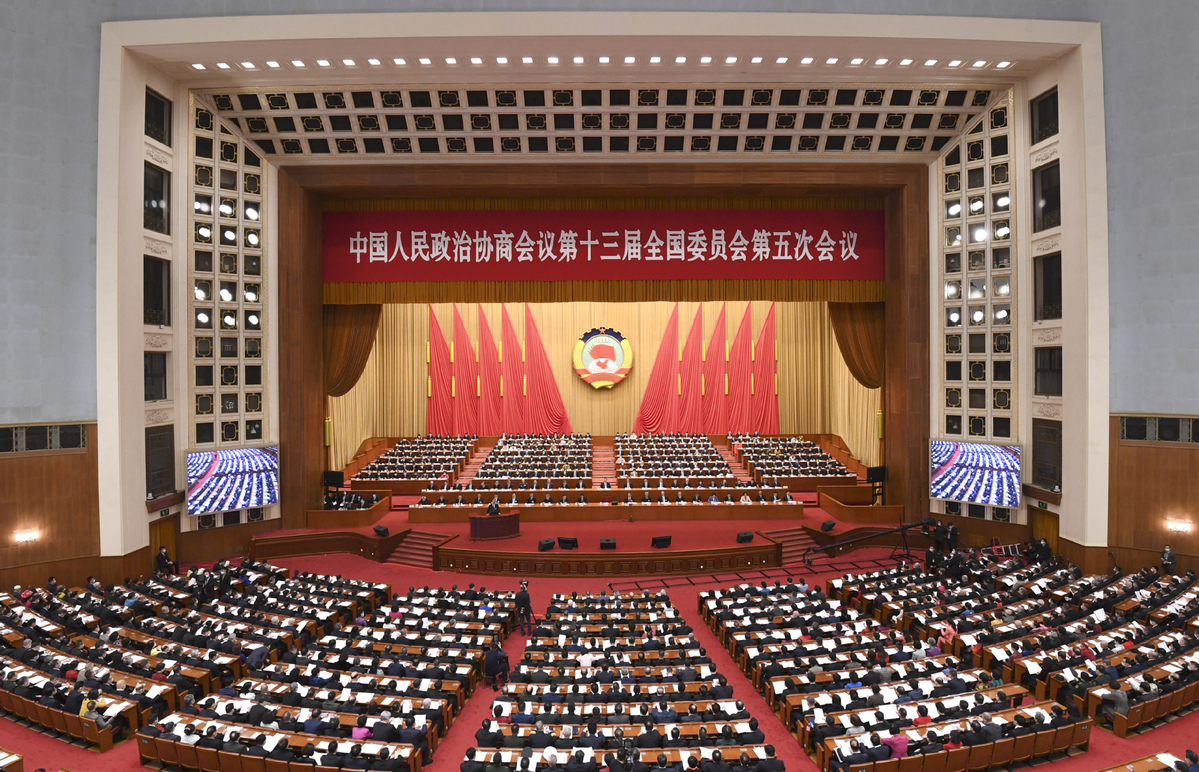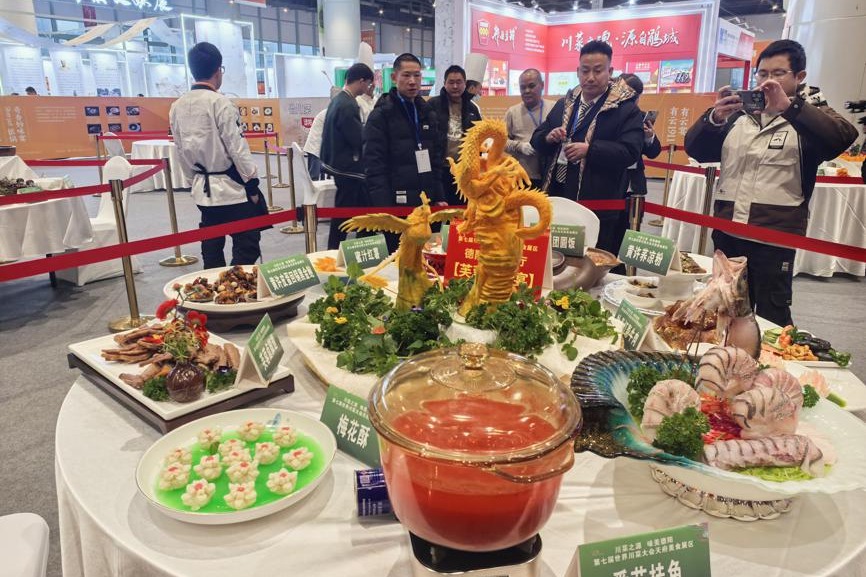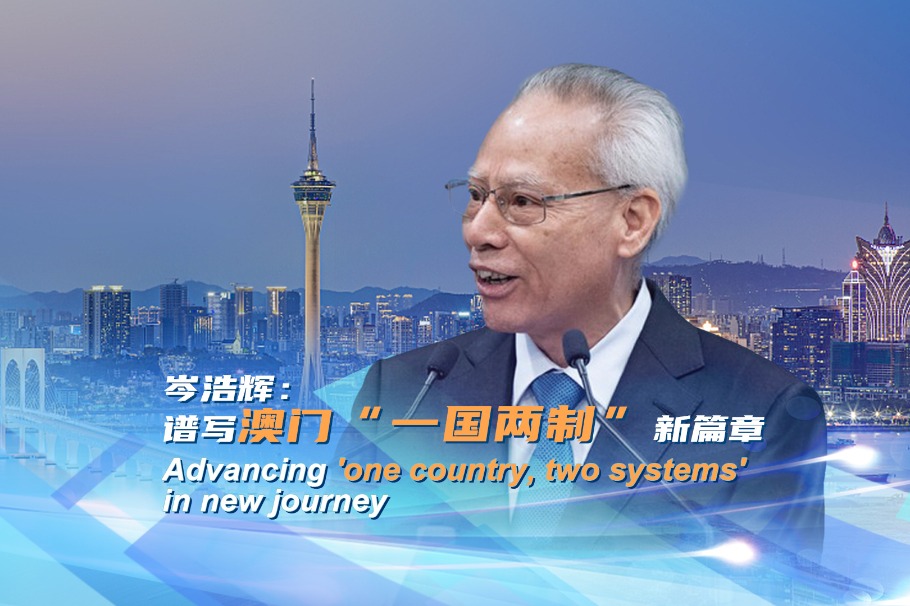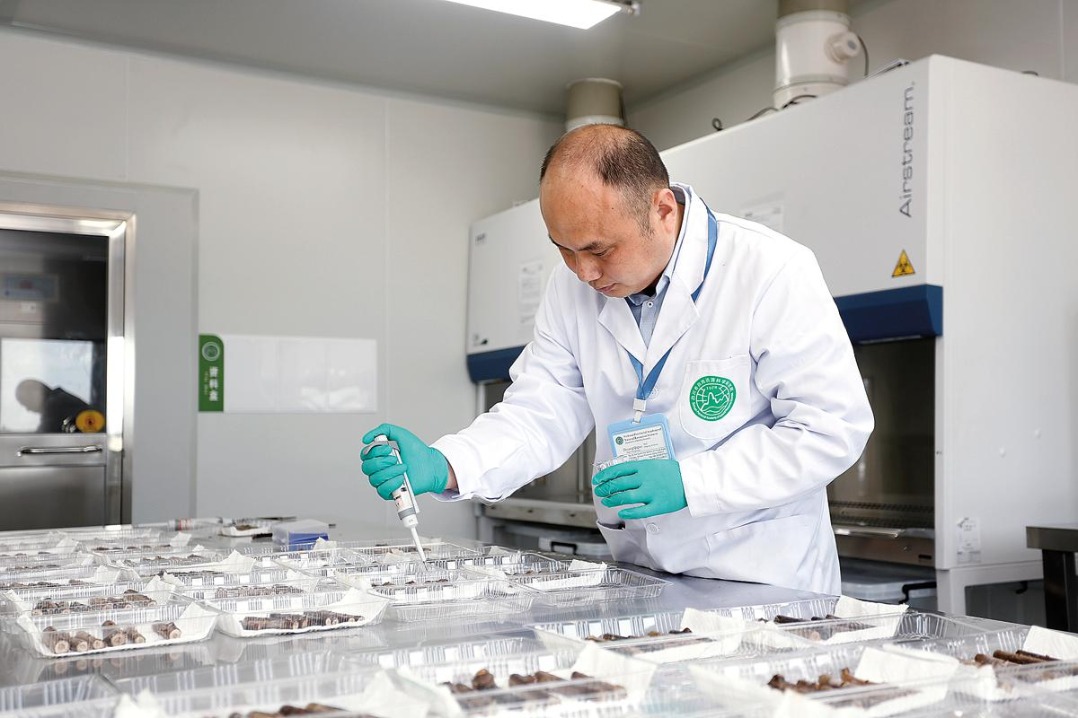Two sessions give foreign students glimpse of opportunities


China's two sessions, the annual gatherings of the National People's Congress and the National Committee of the Chinese People's Political Consultative Conference, present foreign students in China with a window to observe the country's development trends.
Pir Tariq Shah, a Pakistani doctoral student in microbiology at Shanxi University, followed the events and was impressed by China's achievements last year.
According to the annual Government Work Report, presented on March 5, China's GDP exceeded 110 trillion yuan ($17.3 trillion) last year, up 8.1 percent year-on-year,
"As a major economy, China played a crucial role in stabilizing the global economy," Shah said.
For many foreign students, the Belt and Road Initiative was the most compelling topic during the two sessions.
The Government Work Report said China will promote high-quality cooperation under the BRI, remaining committed to the principle of achieving shared growth through consultation and collaboration. Shah said he believes this will boost the economic growth of countries participating in the initiative.
Connecting Kashgar in Northwest China's Xinjiang Uygur autonomous region with Gwadar Port in Pakistan, the 3,000-kilometer China-Pakistan Economic Corridor covers transportation, energy, agriculture and other construction projects, and has brought tangible benefits to people.
The Koto Hydropower Project is one example of Chinese participation in the construction of Pakistani infrastructure. With the help of Chinese contractors, the project in Pakistan's Khyber Pakhtunkhwa province, is nearing completion and is expected to generate energy this year.
"China's investment in Pakistan has enabled more local people to have jobs and laid a foundation for sustainable development," Shah said.
Passy Charles Riseph, a student from the Republic of Congo who is majoring in business management at Shanxi University, has been a direct beneficiary of the BRI, which started in 2013.
He worked as a translator during the construction of the Maya-Maya Airport in his country's capital, Brazzaville-a project undertaken by a Chinese company.
"Our airport had only one floor in the past," Riseph said. "While after the construction was completed, it was at one point the most competitive airport in Central Africa."
The experience inspired him to study in China, and in 2014, he took off from the new airport and arrived in China for a new adventure.
China is now participating in the construction of the Republic of Congo's Pointe-Noire Special Economic Zone. Riseph said he hopes that one day his country can have a special economic zone as developed as China's Shenzhen, in Guangdong province.
Tungamirai Eric Mupona, a Zimbabwean student majoring in international affairs and global governance at Zhejiang University, said he was most interested in the topic of rural development.
In recent years, he has visited rural areas in the Ningxia Hui autonomous region, the provinces of Jiangxi and Zhejiang, and other places, hoping to learn from China's poverty alleviation experience and apply it to his hometown.
The Government Work Report mentioned that China will fully consolidate and build on its achievements in poverty elimination by promoting all-around rural vitalization.
"It is of great significance for promoting the continuous increase of income of poverty-stricken people and preventing a large-scale return to poverty," Mupona said.
Last summer, Mupona and more than 10 other young Africans visited formerly impoverished Xingxian county in Shanxi province to learn how it shook off poverty.
During the weeklong visit, he found that households had moved from earthen caves in the mountains to residential areas with complete living facilities.
Through the development of paper-cutting, millet planting and other industries under the guidance of the government and village officials, the income of the villagers had increased continuously.
"China's economic achievement has brought not only opportunities but also confidence to developing countries," Riseph said, adding that he is determined to go back to Zimbabwe and put his knowledge to use.
"I want more compatriots to live better lives in the future," he said.
Xinhua
- Fudan Art Institute celebrates its official opening
- The progress of public life in Macao
- China further expands basic medical insurance portfolio
- China sends new navy fleet on Gulf of Aden escort mission
- Beijing opens 2 more mausoleums of Ming emperors to public
- China maintains high utilization rates of wind, solar power





































